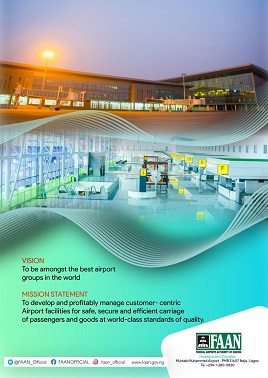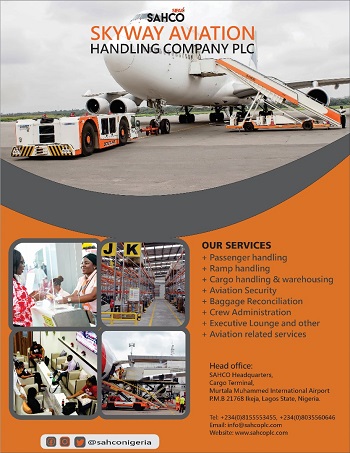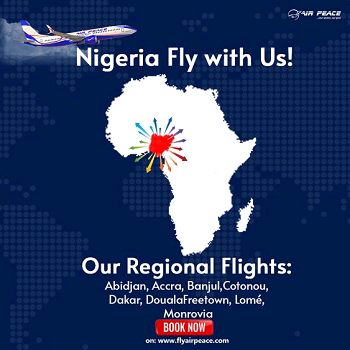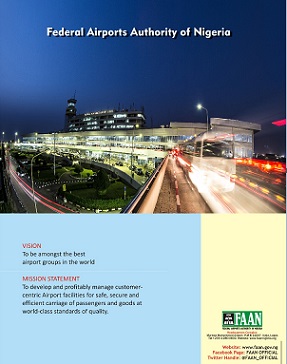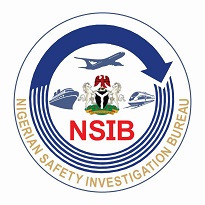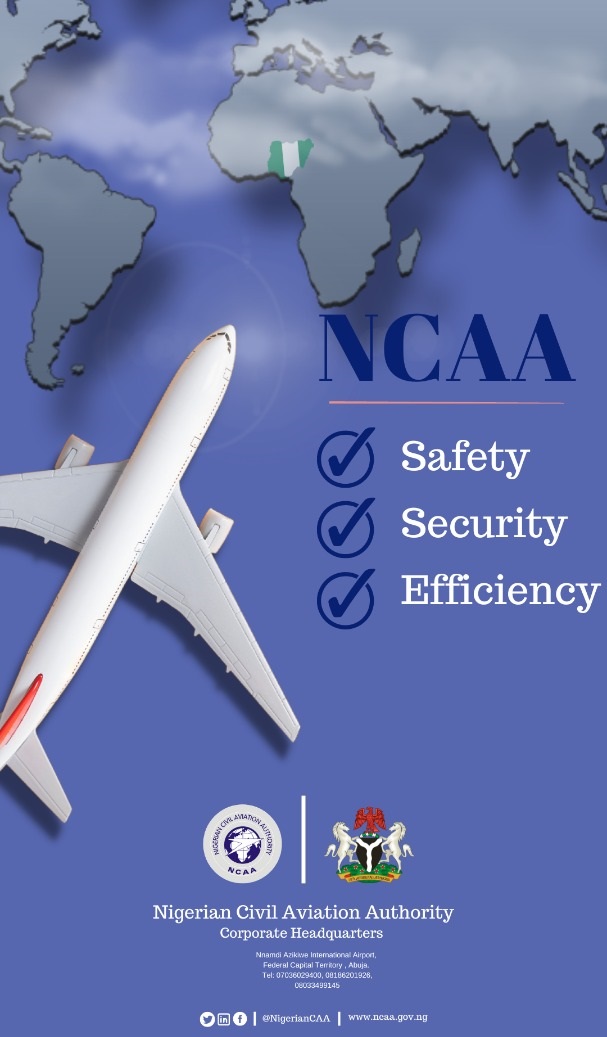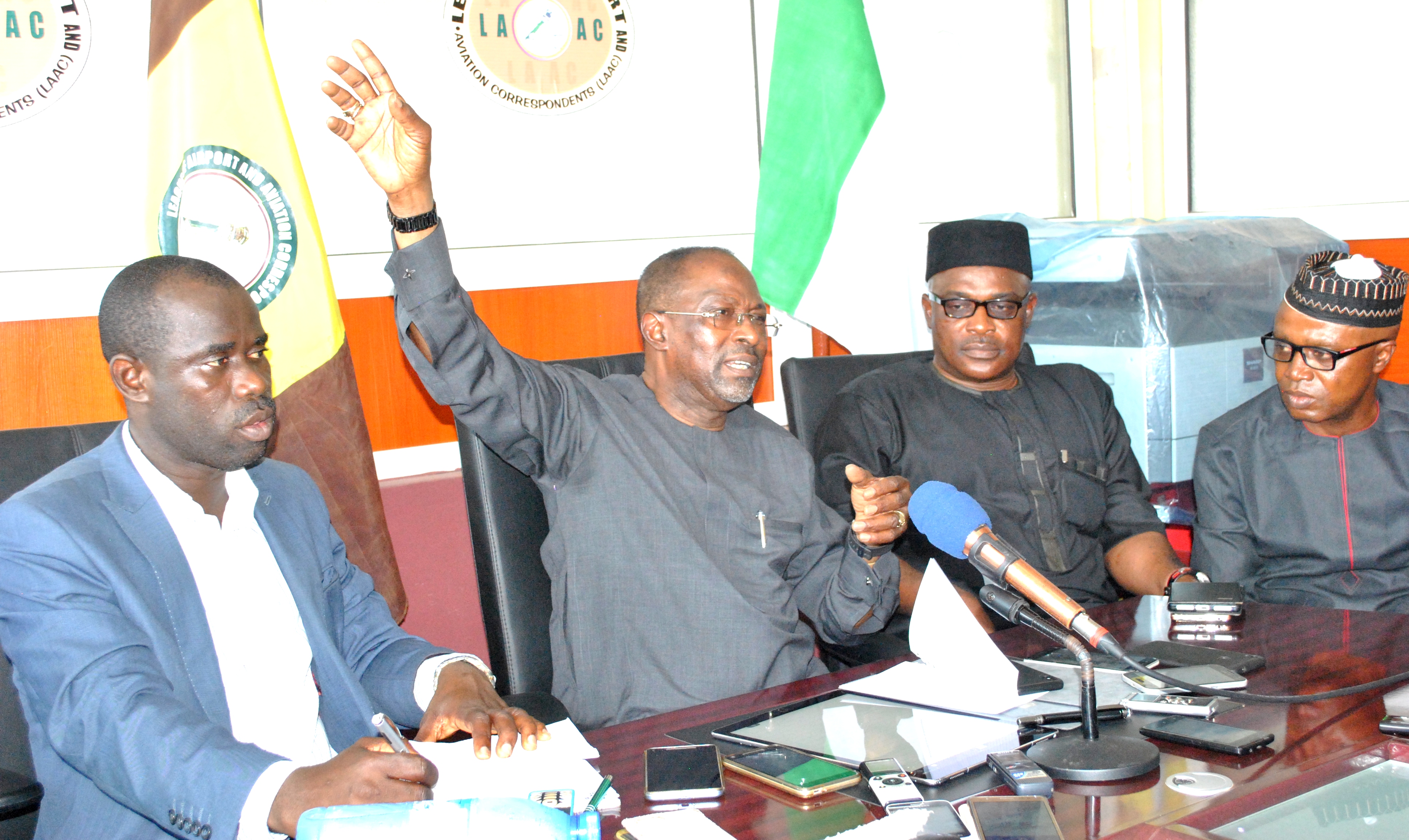
The Managing Director of Nigerian Airspace management Agency (NAMA), Captain Folayele Akinkuotu has attributed the zero accident status recorded in the aviation industry in the country in 2017 to commitments of industry stakeholders to international best practices.
Akinkuotu made this known last weekend at the second edition of the Gateway Forum organised by the League of Airport and Aviation Correspondents (LAAC)
Responding to questions from aviation journalists on his stewardship, plans and challenges since he assumed the position of the chief executive officer of the nation’s airspace management agency, the multi-talented aviator who reeled out the numerous achievements recorded by NAMA at managing the nation’s airspace in the last one year, said these could not be wished away if the zero accident status the nation recorded in year 2017 are to be sustained this year and beyond.
He said the nation was able to record zero accident in her airspace in the year 2017 because it was a major global thing which the nation had to key into and a goal which we must always strive to achieve.
“The issue of zero accident in 2017 was majorly a global thing and it touched us here. So we should all be happy for it. There is no passenger that leaves his house that wants to travel by air, his thought will be, is this flight be safe? The assumption is that it would be a safe flight. Therefore, zero accident is a goal that we must always strive to achieve. Like any human endeavour, we know that there might be failure, there might be challenges along the way even the space programme. We all remember, we have suffered a few setbacks. Difficult times are not desirable but nonetheless there are lessons to be learnt. So the accidents we have had in the past have helped us to look at the issues, to meet the challenges and therefore we salute ourselves by saying, ‘well, 2017 was an accident-free year and we should do everything to maintain that’.
The former Director General of Nigerian Civil Aviation Authority (NCAA) however cautioned that stakeholders in the industry must strive harder to sustain and replicate the achievements in 2018 and beyond avoiding any form of complacence that may spell doom for the industry.
“I do believe that we have done well in 2017 but that does not mean we should let down our guards because it is when we let down our guards that we become complacent, we get our heads swollen and then we forget ourselves. So let us not be carried away by the zero accident but to see that being first in any race is not quite as difficult as maintaining being first. So zero accident is a challenge for us that we have to continue to replicate,” he said.
Speaking from his wealth of experience in the aviation industry in Nigeria, the former Rector of International Aviation College, Ilorin said he has learnt his lessons from both the hard and soft ways in the industry, adding that it has helped him in taking some decisions especially on staff welfare and trainings which he claimed have better positioned the agency to achieve excellent results.
“My stay in the saddle of NAMA is one year old and if I think back about where I have been, I have learnt my lessons, I have had my fingers burnt. I have taken a few of those things to task and God has been kind. I have been told. You don’t see myself being able to do what I have done but I have been told that since I got to NAMA, we have made good effort to address welfare issue and therefore, one key thing, they had a situation where in 2003, a letter was written by government asking NAMA salaries to be harmonized with that of FAAN, that was since 2003. But 15 years down the line, nothing has been done but we have harmonized salaries. My people are happy for it that the management has been able to do that. In the aviation industry, training is paramount and re-training. As a pilot I knew that every six months in those days, I needed to be checked and the check was not only about if I can pass or fail a check right but also during the period, I learned something.
So there is need to train, to continue training and to retrain. And therefore, for me, I made it because I have always been a trainer,” he said.
On the core business areas of NAMA, Communication, Navigation and Surveillance (CNS), Akinkuotu said the agency has performed excellently well; even as he agreed that there are still some gaps to be covered to place the nation in a better state.
“We had challenges on radio. So it became a task for me that must be done. So we approved radios, new radios in several places but we are not there yet, even as it is not relenting in its efforts at moving higher.
“In the field of equipment, as a pilot I know that I had issue on the southeast corridors in particular and sometimes I think even in the northwest, we had challenges on radio. So it became a task for me that must be done. So we approved radios, new radios in several places but we are not there yet. I like to believe that by the end of April, we should see some significant improvement. We are going to sectorise Lagos for example so that the job of the Air Traffic Controllers, for example, will become easier such that some people will talk to Lagos East, some people will talk to Lagos West with new equipment that will improve the clarity of communication.
“So that end we are making effort to improve on communication. I have heard that some people have said communication is better but I have also heard some people said there are still challenges. That is why I said we will continue to make efforts, we are buying new equipment. By the end of April, we expect some of the new equipment to have arrived and it would be one step not in totality of what is required but at least a step in the right direction to address the issue of communication.
“On navigation, let me start by the challenge we had last year. Just as I came, I think that was my baptism of fire, I was not consulted, I was not even there at that time when Abuja Airport runway was evaluated as failing and therefore it had to be closed. The alternate chosen was Kaduna which at that time did not have an Instrument Landing System. The big boys, the international carrier, would not want to come and some of our local carriers wouldn’t even want to come. ILS makes it easier for pilots, makes it safer for the industry. So we got a marching order to install a brand new ILS in Kaduna and have it calibrated in three weeks. The staff of NAMA did it and to this day I cannot help but salute the fact that there people actually have the stuff. So we did that and installed the ILS in Kaduna, we calibrated it and till today it is fruitful.
“In the last one year also in the area of navigation, it is not only Kaduna that needed change, in Kano, we are going to commission. Kano has another brand new ILS and a DVOR, they have been calibrated and they are fine. Lagos is getting a new ILS, we have completed the civil work and installation has commenced. We have gone to Maiduguri, we have gone round there, we have done the civil work, and they will get a brand new ILS and a DVOR.
“In one year also, installing equipment and not calibrating them to know whether they are good enough is not enough. We have three sets of calibration in the last one year to measure the accuracy of the navaids.
“In surveillance, I give a lot of credit to the engineers in NAMA, they have engaged the manufacturers of our nav surveillance equipment in trying to renew the upgrade and maintenance agreement that has expired in 2014. So we are making efforts, we are getting spares to maintain the system and government also approved the installation of the multilateration equipment in the southeast corridor such that we will be able to capture low flying objects and provide them guidance. So overall I think we have hit the three key areas that we are required. I don’t believe that any system can be perfect and so there is the need for us to continue to look at these things and improve on them,” Akinkuotu said.


